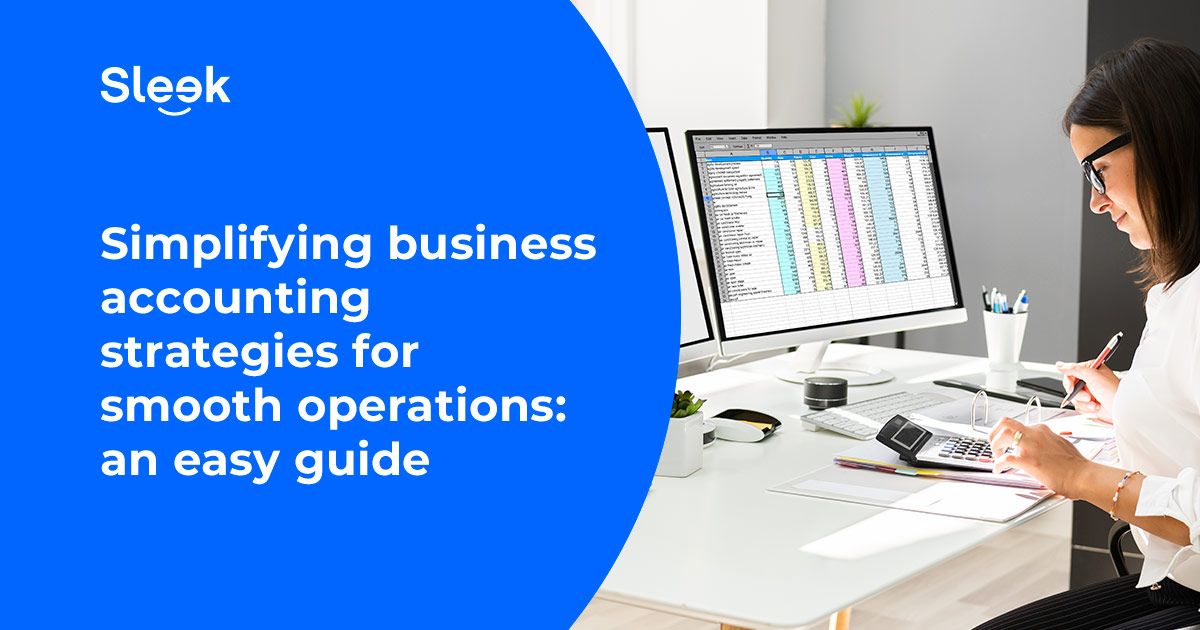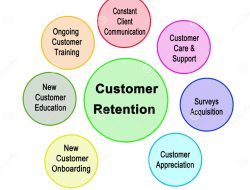How Different Accounting Methods Impact Business Sales and Purchasing Strategies opens a fascinating dialogue about the intricate relationship between accounting practices and business outcomes. In an ever-evolving financial landscape, understanding the nuances of cash basis and accrual accounting can be the key to unlocking new strategies for sales and purchasing. Businesses today must navigate these methods to maximize efficiency and drive growth, setting the stage for a transformative approach to financial management.
The evolution of accounting methods has shaped how companies report their financial health and make informed decisions. By exploring the distinct characteristics of these accounting practices, we uncover how they influence sales forecasting, revenue recognition, and purchasing strategies, ultimately affecting a company’s bottom line.
Overview of Accounting Methods
Understanding accounting methods is crucial for businesses as they dictate how financial transactions are recorded and reported. The two primary accounting methods are cash basis and accrual basis, each with distinct implications for business sales and purchasing strategies. The choice of accounting method can significantly impact a company’s financial health and decision-making processes.The cash basis accounting method records revenues and expenses only when cash changes hands.
This method is straightforward and provides a clear picture of cash flow but may not reflect the actual financial position of a business at any given time. Conversely, the accrual basis accounting method recognizes revenues when earned and expenses when incurred, regardless of when cash is exchanged. This method presents a more accurate financial picture but is often more complex to implement and maintain.
Types of Accounting Methods
An understanding of the different accounting methods available helps businesses align their financial reporting with their operational needs. Here’s a detailed overview of the two primary accounting methods:
-
Cash Basis Accounting:
This method is mainly used by small businesses and sole proprietorships due to its simplicity. Transactions are recorded only when cash is received or paid. For example, a local bakery might record sales only when customers pay in cash, allowing for easy tracking of cash flows. -
Accrual Basis Accounting:
This method is preferred by larger businesses or those with inventory and complex financial transactions. Revenues and expenses are recorded when they are earned or incurred, even if cash has not yet changed hands. A larger corporation, like a manufacturing firm, may deliver products and record revenue at the time of delivery, regardless of when payment is received.
For businesses considering which accounting method to adopt, it’s essential to assess their operational complexity and financial reporting needs.
“The right accounting method can lead to better cash flow management and more informed business decisions.”
The evolution of these accounting methods reflects changes in business practices, technology, and regulatory frameworks. Historically, the cash basis method was prevalent due to its simplicity and the cash-centric nature of early commerce. However, as businesses grew and transactions became more complex, the accrual basis gained traction. Today, the accrual method is commonly mandated for publicly traded companies due to its comprehensive view of financial performance.Examples of businesses utilizing various accounting methods showcase their diverse applications.
A freelance graphic designer may operate on a cash basis to streamline invoicing, while a larger e-commerce platform would benefit from accrual accounting to accurately report sales as orders are fulfilled, enhancing their financial strategy and stakeholder communication.
Impact of Accounting Methods on Sales Strategy: How Different Accounting Methods Impact Business Sales And Purchasing Strategies
In today’s dynamic business environment, the choice of accounting method can significantly shape a company’s sales strategy. Whether a business opts for cash basis or accrual accounting, the implications of these methods extend to how sales are forecasted and revenues are recognized. Understanding these impacts is essential for making informed decisions that align with the overall business objectives.
Different accounting methods distinctly influence sales forecasting and revenue recognition, which are crucial elements of a successful sales strategy. The cash basis method records revenues and expenses only when cash is exchanged, providing a straightforward view of current cash flow. In contrast, accrual accounting acknowledges revenues when earned and expenses when incurred, regardless of cash flow. This difference can lead to contrasting sales reporting outcomes, directly affecting strategic decisions based on perceived financial health.
Comparison of Cash Basis and Accrual Accounting on Sales Reporting
Understanding the differences between cash basis and accrual accounting is vital for businesses looking to optimize their sales strategies. The following points illustrate how each method affects sales reporting:
Cash Basis Accounting
This method offers a clear view of cash flow, making it easier for businesses to manage short-term sales strategies. Companies can quickly assess their liquidity, enabling them to react promptly to market changes. However, this method can underreport sales when transactions occur on credit, potentially misleading decision-makers regarding true sales performance.
Accrual Accounting
By recording sales when they occur, accrual accounting provides a more comprehensive view of sales performance. This method allows for better long-term planning, as it reflects revenue that is expected but not yet received. However, the complexity of tracking receivables can lead to challenges in cash flow management, especially for businesses with high levels of credit sales.
Several companies have adjusted their sales strategies based on their chosen accounting method, demonstrating the practical implications of these accounting practices. For example, a software company that transitioned from cash basis to accrual accounting discovered that its reported sales figures increased significantly, allowing for more accurate forecasting and strategic planning. This shift enabled the company to secure better financing terms based on a more robust financial standing.
Another case involves a retail business that primarily used cash basis accounting. They found that their apparent sales were limited during off-peak seasons, which affected their inventory purchasing decisions. By switching to accrual accounting, they were able to recognize sales from holiday season transactions earlier, thereby adjusting their purchasing strategies to maximize inventory turnover during peak sales periods.
These case studies highlight the critical role that accounting methods play in shaping sales strategies, emphasizing the need for businesses to carefully evaluate their accounting choices to align with their sales objectives and overall financial health.
Impact of Accounting Methods on Purchasing Strategies
The choice of accounting methods significantly influences a business’s purchasing strategies and inventory management decisions. By understanding the implications of different accounting practices, companies can better navigate their purchasing processes and enhance their financial performance. This section explores how various accounting methods shape purchasing strategies, cash flow management, and overall financial reporting.
Influence of Accounting Methods on Purchasing Decisions
Accounting methods, such as cash basis and accrual basis, directly impact how businesses view their purchasing power. Companies utilizing the cash basis method recognize revenues and expenses only when cash is exchanged, which may lead to more cautious purchasing decisions. This can limit inventory growth as businesses focus on immediate cash availability rather than long-term stock planning.Conversely, companies using the accrual basis method recognize revenue and expenditures when they are incurred, not when cash changes hands.
This approach allows for a more strategic purchasing plan, enabling businesses to invest in inventory even if cash isn’t immediately available. This flexibility can enhance product availability and service levels while potentially increasing sales.To illustrate the impact, consider a retail business operating under each method:
- Cash Basis: A retail store may delay purchasing new inventory until sales are made, potentially leading to stockouts and lost sales opportunities.
- Accrual Basis: The same store can order inventory on credit, ensuring a steady supply of products that meet customer demand, thus boosting sales and customer satisfaction.
Implications of Cash Flow Management
Cash flow management is intricately linked to accounting methods, shaping how businesses approach purchasing decisions. Companies using different accounting methods face distinct cash flow challenges that affect their purchasing strategies.Businesses adopting the cash basis method must prioritize immediate cash reserves, often leading to the following scenarios:
- Limited purchasing power during slow sales periods, which can disrupt inventory levels.
- Increased reliance on short-term financing options to meet urgent inventory needs.
In contrast, those utilizing the accrual basis method can better align their purchasing decisions with projected sales and revenue, allowing them to maintain optimal inventory levels consistently. This method leads to:
- Improved planning for bulk purchases based on future cash expectations.
- Enhanced ability to take advantage of vendor discounts and favorable payment terms, thereby reducing overall costs.
“Effective cash flow management enables businesses to optimize their purchasing strategies, ensuring that they have the right products at the right time.”
Shifts in Purchasing Strategies Based on Financial Reporting
Different accounting methods lead to varying financial reports, which can significantly influence purchasing strategies. A business’s financial statements provide insights into profitability, cash flow, and overall financial health, directly impacting purchasing decisions.For example, a company following the accrual method may report higher revenues, encouraging more aggressive purchasing strategies. In contrast, if cash flow reports indicate a weaker position under the cash method, businesses might scale back on inventory purchases to protect their liquidity.Furthermore, the visibility of ongoing financial commitments can shift purchasing strategies considerably.
Companies may choose to:
- Increase purchasing during strong reporting periods, capitalizing on favorable cash positions.
- Implement just-in-time purchasing strategies to minimize inventory holding costs during leaner reporting periods.
In summary, a firm’s choice of accounting methods plays a crucial role in shaping its purchasing strategies. By understanding these impacts, businesses can enhance their inventory management and ultimately drive greater financial success.
Financial Reporting and Analysis
Financial reporting plays a pivotal role in evaluating business performance across various accounting methods. The chosen accounting framework can significantly influence the financial statements, which in turn affect stakeholders’ insights into the company’s operational efficiency, profitability, and financial health. A clear understanding of these reports allows management to make informed decisions, strategize effectively, and communicate with investors and other stakeholders.The impact of accounting methods on financial reporting can be exemplified through different metrics that reflect a company’s performance.
These metrics often vary depending on whether a business adopts cash basis accounting or accrual basis accounting, among others. The choice of accounting method not only shapes the financial statements but also impacts critical financial ratios that stakeholders analyze to gauge financial stability.
Comparison of Financial Metrics Affected by Accounting Methods, How Different Accounting Methods Impact Business Sales and Purchasing Strategies
Understanding how different accounting methods affect financial metrics is essential for accurate analysis. Here’s a comparison showcasing key metrics that vary based on the accounting method used:
| Financial Metric | Cash Basis Accounting | Accrual Basis Accounting |
|---|---|---|
| Revenue Recognition | Recognized when cash is received | Recognized when earned, regardless of cash flow |
| Expense Recognition | Recognized when cash is paid | Recognized when incurred, matching revenue |
| Net Income Reporting | May show lower net income during growth | More accurate reflection of ongoing operations |
| Balance Sheet Representation | Limited, focuses on liquidity | Comprehensive, includes receivables and payables |
| Cash Flow Statement | Primary focus | Supplementary information |
The differences in financial statements based on accounting methods can be demonstrated through illustrative examples. For instance, a company using cash basis accounting may show a significant dip in revenue if most of its sales occur on credit but cash is not yet received. Conversely, an organization utilizing accrual basis accounting would record the same revenue upon sale, portraying a healthier financial position in the short term.Another example involves expense recognition.
A business that incurs substantial costs in one quarter but only pays them in the next would reflect higher liabilities under accrual accounting, impacting the net income reported for that period. This contrast is essential for understanding the company’s true financial standing and operational efficiency.In conclusion, the choice of accounting method profoundly influences financial reporting and analysis, affecting the interpretation of essential business metrics.
Stakeholders must be aware of these differences to make informed decisions regarding business performance and strategy.
Regulatory Considerations
The regulatory landscape for accounting methods significantly influences how businesses report their financial performance and make strategic decisions. Adhering to established frameworks is not only a matter of compliance but also a means of building trust with stakeholders. Understanding the implications of various accounting methods is crucial for maintaining operational integrity and avoiding legal pitfalls.Different accounting methods, such as cash accounting and accrual accounting, are governed by distinct regulatory frameworks, leading to varying compliance requirements for businesses.
For instance, businesses employing cash accounting recognize revenues and expenses when cash is exchanged, while those using accrual accounting recognize transactions when they occur, irrespective of cash movement. This distinction arranges a unique set of regulatory obligations that businesses must navigate carefully to remain compliant.
Legal Implications of Misreporting
Misrepresenting financial information due to the inappropriate application of accounting methods can lead to serious legal repercussions. Businesses must be vigilant and adhere to accounting standards to mitigate risks. The following points highlight the potential legal consequences of misreporting:
Fines and Penalties
Regulatory bodies can impose hefty fines for non-compliance with accounting standards.
Audits and Investigations
Misreporting can trigger audits by agencies such as the IRS or SEC, leading to costly investigations.
Legal Action from Stakeholders
Shareholders and stakeholders may pursue legal actions for damages resulting from misleading financial statements.
Loss of Credibility
Companies may face reputational damage, resulting in a loss of customer trust and a decline in business relationships.
Revocation of Licenses
Continuous non-compliance can lead to the revocation of business licenses and permits.Adhering to proper accounting methods is not just about avoiding penalties; it is essential for fostering transparency and accountability within the business environment.
Strategic Decision-Making

Strategic decision-making in organizations is significantly shaped by the accounting methods employed. These methods not only determine how financial information is recorded and reported but also influence overall business strategy. By providing insights into financial health and operational efficiency, accounting serves as a crucial tool for executives when navigating their companies’ futures.The role of accounting extends into budgeting and forecasting, acting as the backbone of financial planning across various industries.
Accurate financial data enables organizations to predict future revenues, control costs, and allocate resources effectively. The choice of accounting method can lead to varied financial outcomes, which in turn affects strategic decisions. For instance, organizations using accrual accounting may recognize revenue and expenses at different times compared to those using cash accounting, potentially altering their financial strategy.
Influence of Accounting on Strategic Adjustments
The strategic adjustments made by businesses often arise from insights drawn from accounting practices. Organizations can respond effectively to market changes by analyzing their financial reports. Below are key examples of how accounting influences strategic decision-making:
- Budget Realignment: A retail company that uses a traditional accounting method may find that seasonality affects cash flow more than anticipated. Based on this insight, the company adjusts its inventory purchasing strategy, aligning it more closely with peak shopping periods.
- Cost Reduction Initiatives: A manufacturing firm, through activity-based costing, identifies specific areas where production costs exceed benchmarks. As a result, the firm implements process improvements leading to enhanced efficiency and reduced overhead.
- Investment Decisions: A tech startup assessing its financial health through its accounting records decides to delay a major capital expenditure until more favorable conditions arise, thus mitigating financial risk.
- Market Expansion: A service-based business evaluates its profitability by segment using managerial accounting methods. Discovering higher margins in specific services prompts the firm to invest more resources in those areas, facilitating targeted market expansion.
An important aspect to consider is the impact of financial reporting and analysis on strategic choices. The clarity and transparency of accounting data empower management to make informed decisions that align with long-term goals. As companies navigate complex market dynamics, the precision of their financial insights can determine the success or failure of their strategic initiatives.
“Sound accounting practices provide the compass for strategic decision-making, ensuring that organizations navigate toward their financial goals with confidence.”
Future Trends in Accounting Practices
As the business landscape evolves, the accounting field is witnessing transformative trends that are reshaping sales and purchasing strategies. Companies are increasingly recognizing the necessity of embracing innovative accounting practices to stay competitive and efficient. Future trends are driven by advancements in technology, regulatory changes, and shifting business needs that demand agility and precision in financial management.Emerging trends in accounting are set to significantly influence how businesses approach sales and purchasing.
The integration of automation and artificial intelligence (AI) into traditional accounting methods is revolutionizing operational efficiencies, reducing human error, and enhancing real-time financial insights. This technological evolution enables faster decision-making processes, providing businesses with a competitive edge.
Influence of Technology on Accounting Methods
The impact of technology on accounting practices cannot be overstated. Automation and AI are streamlining various accounting functions, allowing professionals to focus on strategic analysis rather than routine tasks. This paradigm shift is instrumental in shaping future sales and purchasing strategies.The following innovations are poised to reshape accounting practices in the years to come:
- Robotic Process Automation (RPA): Automating repetitive tasks such as data entry and reconciliation enhances efficiency and reduces errors.
- AI-Powered Analytics: Advanced algorithms analyze vast amounts of data to provide actionable insights, enabling businesses to anticipate market trends and consumer behavior.
- Cloud-Based Accounting Solutions: These platforms offer real-time access to financial data from anywhere, facilitating better collaboration and decision-making across teams.
- Blockchain Technology: Enhancing transparency and security in financial transactions, blockchain can revolutionize payment processing and inventory management.
- Machine Learning Applications: These tools can help predict cash flow trends and manage risk by analyzing historical data patterns.
- Integrated Financial Systems: Merging various financial functions into a single platform allows for seamless operations and holistic financial management.
- Predictive Analytics: Utilizing historical data to forecast future sales and purchasing needs empowers businesses to make informed strategic decisions.
Integrating these innovations into accounting practices will not only improve operational performance but will also enable businesses to align their sales and purchasing strategies more closely with market demands.















